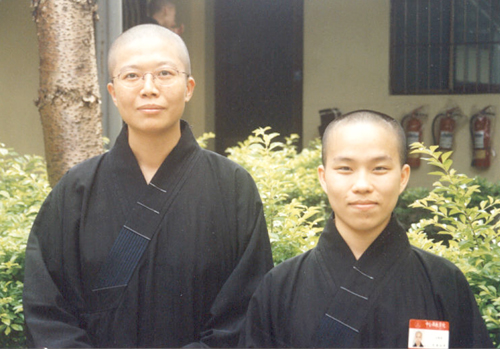
“Anthropologists are fond of saying that we endeavor to ‘make the strange seem familiar and the familiar seem strange,’” said Hillary Crane, associate professor at Linfield College.
And this is exactly what Crane intends to do. On Tuesday, Feb. 7, this anthropologist will present her most recent ethnographic field research in her lecture, “Men in spirit: the masculinization of Taiwanese Buddhist nuns,” in Cramer Hall.
“To that end, I hope to make what may initially seem quite foreign—in this case, Buddhist nuns claiming to be men—come to make sense and seem less strange for the audience,” Crane said. “At the same time, I hope that exposure to another culture’s practices and understandings highlights the ways in which our taken-for-granted practices and understandings are products of our own unique culture.”
The lecture will explain the position of Buddhist nuns in Taiwan and examine their claims that, since they have renounced the world and become nuns, they are now becoming men.
“I became interested in Taiwanese Buddhist culture while I was there studying Chinese in graduate school, and I noticed that Buddhist nuns had a really prominent role in Buddhist leadership,” Crane said. “Since that’s unusual—in most Buddhist cultures nuns play a secondary role to monks—I thought it would be worth studying.”
Once she began looking at their lives with serious interest, many more remarkable issues arose that Crane wound up investigating in her doctoral dissertation and in studies that followed.
Originally from the Seattle area, Crane earned her doctorate at Brown University and then returned to the Pacific Northwest in 2007. Her research was conducted primarily in the field. She lived for two and a half years in Taiwan, more than half of which was spent studying the customs and everyday lives of Buddhist nuns.
“I went intending to investigate why so many young, college-educated women were choosing to become nuns and anticipated writing something about female leadership in Taiwanese Buddhism,” Crane said. “As often happens with anthropological research, once I’d started the research, I realized there were other, more interesting issues at hand, in particular, the nuns’ gender identities.”
Crane traveled throughout Taiwan during her stay but carried out the bulk of her research in a monastery housing about 3,500 people. She interviewed nearly 50 of them, observing daily life while working at the temple’s guest relations office and teaching English classes.
In addition to examining the nuns, she participated in various monastery retreats, rituals and general activities. She spent a significant amount of one-on-one time with the nuns.
“Anthropological research tends to be narrowly focused,” Crane said. “We believe we get more out of spending more time with fewer people than less time with more people.”
In her presentation, professor Crane argues that the nuns have a different understanding of gender than Americans do, one that is much less permanent and fixed to the human body.
“There are models in Buddhist literature and in Chinese culture of women who take on the role of males and are accepted as such,” Crane said. “Like the women who become men in these stories, the nuns I studied can become men without having male bodies. They become men by acting like men and, as I’ll emphasize in my talk, by renouncing the world and their families when they become nuns.”
While these Buddhist nuns remain physically female, Crane discovered that, along with these psychological changes, they believe other changes will occur.
“They do expect to eventually change physically as well,” Crane explained. “[Being a man is] something they work hard to achieve, and they do so by studying the behavior of men they admire and by trying to get rid of bad habits they associate with femininity.”
The event is sponsored by the PSU Institute for Asian Studies and the women, gender and sexuality studies program with supplemental support from the University of Oregon National Resource Center for East Asian Studies.
“Men in spirit: the masculinization of Taiwanese Buddhist nuns,” a lecture by Hillary Crane
Tuesday, Feb. 7, 4 p.m.
Cramer Hall, room 283

